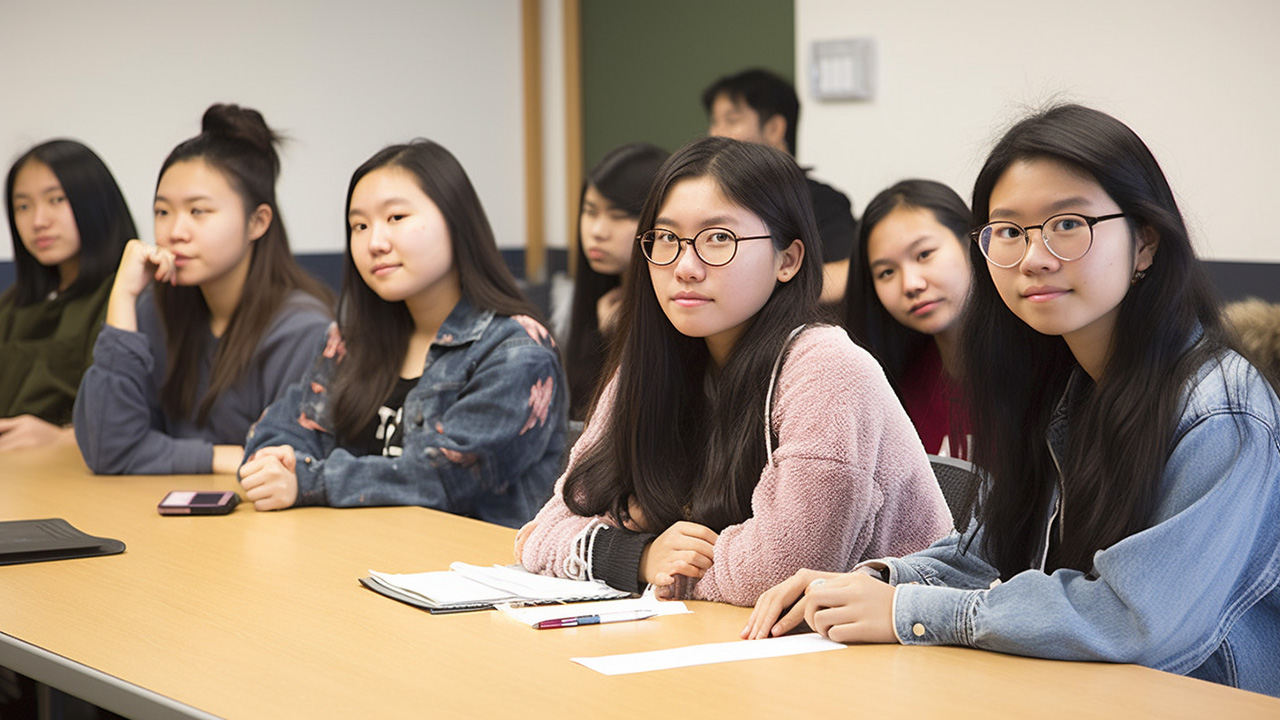Introduction
Hello, everyone! Welcome to the first article in our series aimed at helping you improve your Chinese language skills. Chinese is a rich and intricate language, but learning it can sometimes be a challenging task. Mistakes are a natural part of the learning process. In this article, we'll identify 20 common errors that people often make when learning Chinese. By being aware of these pitfalls, you'll be better equipped to avoid them in your own journey.
The Importance of Correcting Your Mistakes
Before we dive into the examples, let's talk about why correcting mistakes is crucial. Errors in grammar, pronunciation, or word usage can not only hinder effective communication but also create misunderstandings. By addressing these issues early on, you'll build a stronger foundation for your language skills and feel more confident while speaking or writing.
For each mistake, we'll follow this format:
- Context: A brief explanation of the context in which the mistake is made.
- Common Mistake: The incorrect expression or sentence.
- Correct Way: The correct expression or sentence.
- Why It's Wrong: A short explanation of why the mistake occurs and how to avoid it.
1. For someone who’s full name in English is John Smith.
Common Mistake:
Wǒ xìng John, wǒ jiào Smith.
我姓John,我叫Smith。
I last-name-to-be John, I am-called Smith.
Correct Way:
Wǒ xìng Smith, wǒ jiào John.
我姓Smith,我叫John。
I last-name-to-be Smith, I am-called John.
Why It's Wrong: 姓 is last name to be, so it should only be used with your last name, 叫 should be used with your given name.
2. For someone who’s full name in Chinese is 李明。
Common Mistake:
Wǒ jiào Lǐ . Wǒ xìng Míng .
我叫李。我姓明。
I am-called Li. I last-name-to-be Ming.
Correct Way:
Wǒ xìng Lǐ . Wǒ jiào Lǐ Míng .
我姓李,我叫李明。
I last-name-to-be Li. I am-called Li Ming.
Why It's Wrong: 姓 is last name to be, so it should only be used with your last name, 叫 should be used with your given name.
3. To write “I live in a dormitory.” in Chinese characters.
Common Mistake:
Wǒ zhù zài yí jiàn sùshè .
我住在一见宿舍。
I live in one “*see” (of) dormitory.
Correct Way:
Wǒ zhù zài yì jiān sùshè .
我住在一间宿舍。
I live in one “ jian ” (of) dormitory.
Why It's Wrong: This is a typo where 见 to see, was written instead of 间 the correct measure word for 宿舍.
4. To ask "Where are you going?" in Chinese.
Common Mistake:
Nǐ xiàwǔ dào qù nǎlǐ ?
你下午到去哪里?
Where (do) you go go (in the) afternoon?
Correct Way:
Nǐ xiàwǔ dào nǎlǐ qù ?
你下午到哪里去?
Where (do) you go (in the) afternoon?
Nǐ xiàwǔ qù nǎlǐ ?
你下午去哪里?
Where (do) you go (in the) afternoon?
Why It's Wrong: 到 and 去 are used incorrectly in this sentence, should be used like the two examples.
5. To say "I'm used to it here." in Chinese.
Common Mistake:
Wǒ hé zhèlǐ hěn xíguàn .
我和这里很习惯。
I with here very used-to.
Correct Way:
Wǒ zài zhèlǐ hěn xíguàn .
我在这里很习惯。
I (am) very used to (it) here.
Wǒ hěn xíguàn zhèlǐ .
我很习惯这里。
I (am) very used to (it) here.
Why It's Wrong: incorrect use of 和 and 习惯.
6. To write “I am Chinese.” in Chinese characters.
Common Mistake:
Wǒ shì Zhōngguó rù .
我是中国入。
I am Chinese *to-enter.
Correct Way:
Wǒ shì Zhōngguó rén .
我是中国人。
I am Chinese-person.
Why It's Wrong: This is a typo where 入 was typed instead of 人.
7. To ask someone's age.
Common Mistake:
Wǒ shí bā suì , nǐ duō dà suì ?
我十八岁,你多大岁?
I (am) 18 years-old, *how old are you?
Correct Way:
Wǒ shí bā suì , nǐ duō dà ?
我十八岁,你多大?
I (am) 18 years-old, how old are you?
Why It's Wrong: When asking someone's age with "多大”, we need to omit the second 岁 in the first sentence.
8. To say an English name in Chinese.
Common Mistake:
Tā de míngzi shì Bōtè·Hālì .
他的名字是波特·哈利。
His name is Potter Harry.
Correct Way:
Tā de míngzi shì Hālì·Bōtè .
他的名字是哈利·波特。
His name is Harry Potter.
Why It's Wrong: When writing English names, given name comes before surname.
9. To say "My room is not big."
Common Mistake:
Wǒ de fángjiān bù hěn dà .
我的房间不很大。
*My room (is) not very big.
Correct Way:
Wǒ de fángjiān bú dà .
我的房间不大。
My room (is) not big.
Why It's Wrong: 很+adj. is a structure in Chinese but 不很 is not; you would just say 不+adj.
10. To say "Don't use other people's computer." in Chinese.
Common Mistake:
Bú yòng biérén de diànnǎo .
不用别人的电脑。
Not to-use other people’s computer.
Correct Way:
Bú yào yòng biérén de diànnǎo .
不要用别人的电脑。
Don’t use other people’s computer.
Why It's Wrong: 不要 means don't whereas 不 means not; so 不要 is correct.
11. To ask a yes or no question with "吗".
Common Mistake:
Nǐ shì Zhōngguó rén mā ?
你是中国人妈?
Are you Chinese-person *mother?
Correct Way:
Nǐ shì Zhōngguó rén ma?
你是中国人吗?
Are you Chinese-person?
Why It's Wrong: This is a typo where they typed 妈 instead of 吗.
12. To say "good morning" to your little sister.
Common Mistake:
Zǎoshang hǎo , wǒ mèimei !
早上好,我妹妹!
Good morning, my little-sister!
Correct Way:
Zǎoshang hǎo , mèimei !
早上好,妹妹!
Good morning, little-sister!
Why It's Wrong: In this situation in Chinese we would just say 妹妹 instead of 我妹妹.
13. To say "Teacher Wang has 50 students.”
Common Mistake:
Wáng Lǎoshī yǒu wǔ shí de xuéshēng .
王老师有五十的学生。
*Teacher Wang has 50 students.
Wáng Lǎoshī yǒu wǔ shí xuéshēng .
王老师有五十学生。
*Teacher Wang has 50 students.
Correct Way:
Wáng Lǎoshī yǒu wǔ shí ge xuéshēng .
王老师有五十个学生。
Teacher Wang has 50 “ ge ” (of) students.
Why It's Wrong: 个 is the correct (and required) measure word for 学生.
14. To say "Because I have a meeting tomorrow..." in Chinese.
Common Mistake:
Yīnwèi , wǒ míngtiān yào kāihuì , suǒyǐ bù néng qù kàn diànyǐng .
因为,我明天要开会,所以不能去看电影。
Because, I “intend to” have(-a-)meeting tomorrow, so (I) can not go to watch (the) movie.
Correct Way:
Yīnwèi wǒ míngtiān yào kāihuì , suǒyǐ bù néng qù kàn diànyǐng .
因为我明天要开会,所以不能去看电影。
Because I “intend to" have(-a-)meeting tomorrow, so (I) can not go to watch (the) movie.
Why It's Wrong: Incorrect use of a comma after 因为.
15. To say "I live in America." in Chinese.
Common Mistake:
Wǒ shēnghuó zài Měiguó li .
我生活在美国里。
I live in America-inside.
Correct Way:
Wǒ shēnghuó zài Měiguó .
我生活在美国。
I live in America.
Why It's Wrong: In this sentence 里 should not be used.
16. To ask someone's birthday in Chinese.
Common Mistake:
Nǐ de shēngrì jǐ yuè jǐ rì ?
你的生日几月几日?
What month (and) what day your birthday?
Correct Way:
Nǐ de shēngrì shì jǐ yuè jǐ rì ?
你的生日是几月几日?
What month (and) what day is your birthday?
Why It's Wrong: This sentence requires a 是 after 生日.
17. To introduce someone in Chinese.
Common Mistake:
Zhè wèi shì Xiānsheng Wáng , nà wèi shì Xiǎojiě Lǐ .
这位是先生王,那位是小姐李。
*This is Mr. Wang, (and) that is Miss Li.
Correct Way:
Zhè wèi shì Wáng Xiānsheng , nà wèi shì Lǐ Xiǎojiě .
这位是王先生,那位是李小姐。
This is Mr. Wang, (and) that is Miss Li.
Why It's Wrong: In Chinese, family name comes before title, in this case 王 comes before 先生 and 李 comes before 小姐.
18. To say something's price in Chinese.
Common Mistake:
Zhè běn shū jiǔ bǎi sì shí qián .
这本书九百四十钱。
This “ben” (of) book 940 money.
Correct Way:
Zhè běn shū jiǔ bǎi sì shí kuài qián .
这本书九百四十块钱。
This “ben” (of) book (is) 940 “ kuai ” (of) money.
Why It's Wrong: This sentence omitted the measure word for 钱 which is 块.
19. To say "I want to buy 5 apples." in Chinese.
Common Mistake:
Wǒ xiǎng wǔ ge píngguǒ .
我想五个苹果。
I *think 5 “ ge ” (of) apples.
Correct Way:
Wǒ xiǎng mǎi wǔ ge píngguǒ .
我想买五个苹果。
I want to buy 5 “ ge ” (of) apples.
Why It's Wrong: Incorrect use of 想, in this instance it should be 想买.
20. To say "You're busier than me." in Chinese.
Common Mistake:
Nǐ bǐ wǒ hěn máng .
你比我很忙。
You “comparing with” me (are) very busy.
Correct Way:
Nǐ bǐ wǒ máng .
你比我忙。
You (are) busier than me.
Why It's Wrong: Structure is 比+我+adj. not 比+我+很+adj.
Frequently Asked Questions

1. How can I practice avoiding these common mistakes?
The best way to practice is through consistent exposure to the language. This could be through conversing with native speakers, 1 on 1 tutoring, or studying our courses. Additionally, consider revisiting this list of common mistakes as a refresher from time to time.
2. I'm a beginner. Should I be worried about making these mistakes?
Absolutely not! Making mistakes is a natural part of the learning process. The important thing is to be aware of them and take steps to correct them as you progress in your studies.
3. Will making these mistakes affect my ability to communicate?
While some mistakes may cause minor misunderstandings, they are generally not detrimental to basic communication. As you advance and become more aware of these common errors, your ability to communicate effectively will only improve.
4. Can native speakers understand me even if I make these mistakes?
In most cases, yes. Native speakers are often able to understand the gist of what you're saying, even if there are some errors. However, it's always beneficial to strive for accuracy to make communication smoother and more enjoyable for everyone involved.
5. Are there more common mistakes to be aware of?
Absolutely, this article is just the tip of the iceberg. Languages are complex, and Chinese is no exception. Stay tuned for future articles where we'll delve into more common mistakes and how to avoid them.
Conclusion
And there we have it! The first 20 common mistakes that learners often make when studying Chinese. Remember, making mistakes is a part of the learning process; what matters is how you address them. By being aware of these common errors and taking steps to correct them, you'll be well on your way to becoming a proficient Chinese speaker. Stay tuned for the next article in this series, where we'll continue to explore more aspects of this fascinating language. Thank you for reading, and happy learning!
